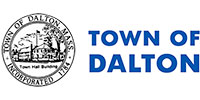Board of Health
Board of Health
Board of Health Complaint Form. Please use this form to submit a complaint to the Board of Health. All complaints must be in writing, to be evaluated. Completed forms can be emailed to BOH@dalton-ma.gov.
BCBOHA Public Health Alert H5N1 Chickens and Cows 2025.01.17
Berkshire Regional Planning Commission provides a wide range of public health services to Dalton. Public health nursing staff work with the local boards of health to provide infectious disease tracking and surveillance, wellness/vaccine clinics, and public health education within the community. If you would like more information on public health services or to arrange an educational event at your organization, please contact Sophie Carnes Jannen at scarnesjannen@berkshireplanning.org, or Leslie Drager at ldrager@berkshireplanning.org.
Please contact Leslie Drager at ldrager@berkshireplanning.org for an updated listing of Choke Saver Classes.
BOARD OF HEALTH MEETING TIMES
The Dalton Board of Health conducts its monthly meetings in-person with an option to participate via Zoom every 2nd Tuesday of the month at 5:30PM at Town Hall in the Callahan Conference Room. These meetings remain open to the public and will be posted as required by law on https://www.mytowngovernment.org/01226.
ALL Board of Health permit applications, including restaurants, summer camp operators, septic designers, tobacco, body art and more, are available on-line through our permitting service, PermitEyes. Click below link to get started!–
https://fctpermit.com/sites/alliance/boh/user_logins.asp
On October 3, 2022, the Dalton Board of Health voted to adopt regulations pertaining to Restricting the Sale of Tobacco Products with an effective date of February 1, 2023. The updated regulations can be viewed by clicking the below link.
Restricting the Sale of Tobacco Products
Local boards of health in Massachusetts are empowered by state law to perform many crucial and important duties relative to the protection of the public health, control of disease, promotion of sanitary living conditions and the protection of the environment from pollution. This includes performing restaurant, public pool and housing inspections as well as reviewing plans for private wells and septic systems and investigating nuisance complaints. Enforcement of state and local regulations regarding residential camps, refuse hauling, tobacco sales and body art establishments are also required.
BEAVER CONFLICT RESOLUTION
BODY ART PRACTITIONERS
CLIMATE / ENVIRONMENTAL HEALTH
Resources to reduce Heat Illnesses: CDC Preventing – Related Illness
On Tuesday, April 29, the Office of Local and Regional Health collaborated with the Bureau of Infectious Disease and Laboratory Sciences (BIDLS) to host a special topic webinar on measles. You can view the slides, answers to questions, and other additional resources below:
- epiENGAGE Measles Outbreak Simulator Tool
- DPH Measles Advisory, March 11, 2025
- How to obtain MMR vaccine from DPH or using PHE funding
- BIDLS Infectious Disease Tools for Local Health Webinar Series
- Intro to Measles Case Investigation and Follow-up Slides
- CDC Resources on Measles (fact sheets, flyers, etc.)
- MA school immunization data
FOOD ESTABLISHMENT
Mosquito & Tick Borne Illness
postpartum
Recreational Camps for Children
Septic System
Tobacco Sales
Private Wells
*The Board of Health has bottles for water testing available upon request*
Swimming Pool
Solid Waste
Septage Hauler Permit
Regulations
ALL Board of Health permit applications, including restaurants, summer camp operators, septic designers, tobacco, body art and more, are available on-line through our permitting service, PermitEyes. Click below link to get started!–
On October 3, 2022, the Dalton Board of Health voted to adopt regulations pertaining to Restricting the Sale of Tobacco Products with an effective date of February 1, 2023. The updated regulations can be viewed by clicking the below link.
Restricting the Sale of Tobacco Products
Local boards of health in Massachusetts are empowered by state law to perform many crucial and important duties relative to the protection of the public health, control of disease, promotion of sanitary living conditions and the protection of the environment from pollution. This includes performing restaurant, public pool and housing inspections as well as reviewing plans for private wells and septic systems and investigating nuisance complaints. Enforcement of state and local regulations regarding residential camps, refuse hauling, tobacco sales and body art establishments are also required.
Beaver Conflict Resolution
Body Art Practitioners
CLIMATE / ENVIRONMENTAL HEALTH
COVID-19
Food Establishments
Mosquito & Tick Borne Illness
postpartum
Recreational Camps for Children
Septic System
Tobacco Sales
Private Wells
*The Board of Health has bottles for water testing available upon request*


